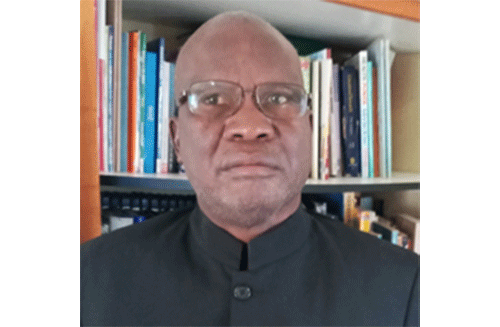The new Cabinet has been sworn in, and we are witnessing political and economic realities and changes. No region has been left out, unlike in previous political dispensations where other factors were considered in the formation of cabinets and other instruments of government, despite the Harambee rhetoric.
By collapsing the bloated cabinet, it is assumed that savings will go to other national projects. A situation where there are thirty ministers, thirty or more deputy ministers, and many bureaucratic permanent and deputy permanent secretaries, directors, deputy directors, and senior officers, who after four years walk into a garage and pull a brand-new car under the car scheme at the expense of taxpayers’ money, is no longer economically viable.
Those who doubted that the new president could deliver on her promise might be squirming, realising that she kept her word by collapsing the former bloated cabinet. In this regard, she should be the one laughing the best amid opposition.
This idea that those who are victorious politically have the last laugh taps into the notion that in politics, the ultimate outcome is what matters most. Ultimately, it is about who holds power, regardless of how hard-fought or dirty the process may have been.
Throughout political history, leaders or parties have held the upper hand and enjoy the satisfaction of setting the agenda and often having the final say. The phrase “he who laughs last, laughs best” applies well in politics and can be observed in many aspects of life, not only politics. Political victories often come after long struggles, and the ultimate winner gets to shape the narrative, implement policies, and enjoy the fruits of their success.
It’s about perseverance and strategy; sometimes, politicians who seem to be losing can make a comeback and ultimately have the last laugh over their opponents. In Sifwe, there is a saying, “Mulya katanzi asubvirla mensho,” meaning one who hurriedly eats first will end up envying the most delicious food consumed by friends. It is a fact that many leaders of political parties who ended up in the august house this year faced numerous challenges but kept moving forward. The struggles of the ruling party are too numerous to mention, starting from being labeled a terrorist organization to being hounded and banned from their own country.
The ruling party finally came to power and has been ruling since 1990, marking thirty-five years now. Small parties have also joined the political fray, and amid hurdles and election failures, they managed to be “die last koei kom ook in die kraal.” Unfortunately, after a long walk to freedom, some liberators have somersaulted and instead of standing up for what they fought for, reversed the tempo of liberty. Some even became the most oppressive, as Paulo Freire (1972), the Brazilian anarchist scholar, advocated for radical change in education to avoid a situation where learners are treated as banks where knowledge is deposited and withdrawn at the teacher’s convenience.
Some political leaders might even ‘push the ladder’ they used when ascending the corridors of power. We hope that the new head of state’s clear stance against corruption will be heeded, and people should await that promise with anticipation. Furthermore, the small political parties that entered the august house for the first time should recognise that they were not brought there by accident but were voted into the house.
Ultimately, the wishes of the electorate should take centre stage. They should not forget the disparaging voices they were forced to endure when their parties struggled to secure even one seat in parliament.
The names they were called in an attempt to humiliate them should still resonate in their ears as they assert themselves as politicians like others. Now that these parties are represented in parliament, it is a clear sign that they struggled and worked very hard to be where they are today. Nevertheless, it is essential to note that politics is not static but dynamic, and the new appointments reflect that.
Some political analysts may agree that the 2025 cabinet formation and the ultimate cessation of the long-held belief of a few individuals clinging to political power is no longer the norm.
The political climate is warming up, and those who still believe they are the permanent bosses of certain political parties will soon find themselves pushed aside while newcomers overtake them. The harsh truth is that all political parties faced tremendous hurdles yet managed to reach parliament with the support of their members. Therefore, it is crucial for political leaders to honour their manifesto pledges. The eyes and ears of senior citizens are on edge, awaiting news about the N$3000.
Above all, the perseverance, dedication, and commitment demonstrated during the campaigns should not become mere embers; these tenets should be upheld to connect with their constituents.
If these principles are realised, then the call will linger in their ears that “those who laugh last, laugh best.”
*Prof. Makala Lilemba is an academician, author, diplomat, motivational leader, researcher, and scholar.



